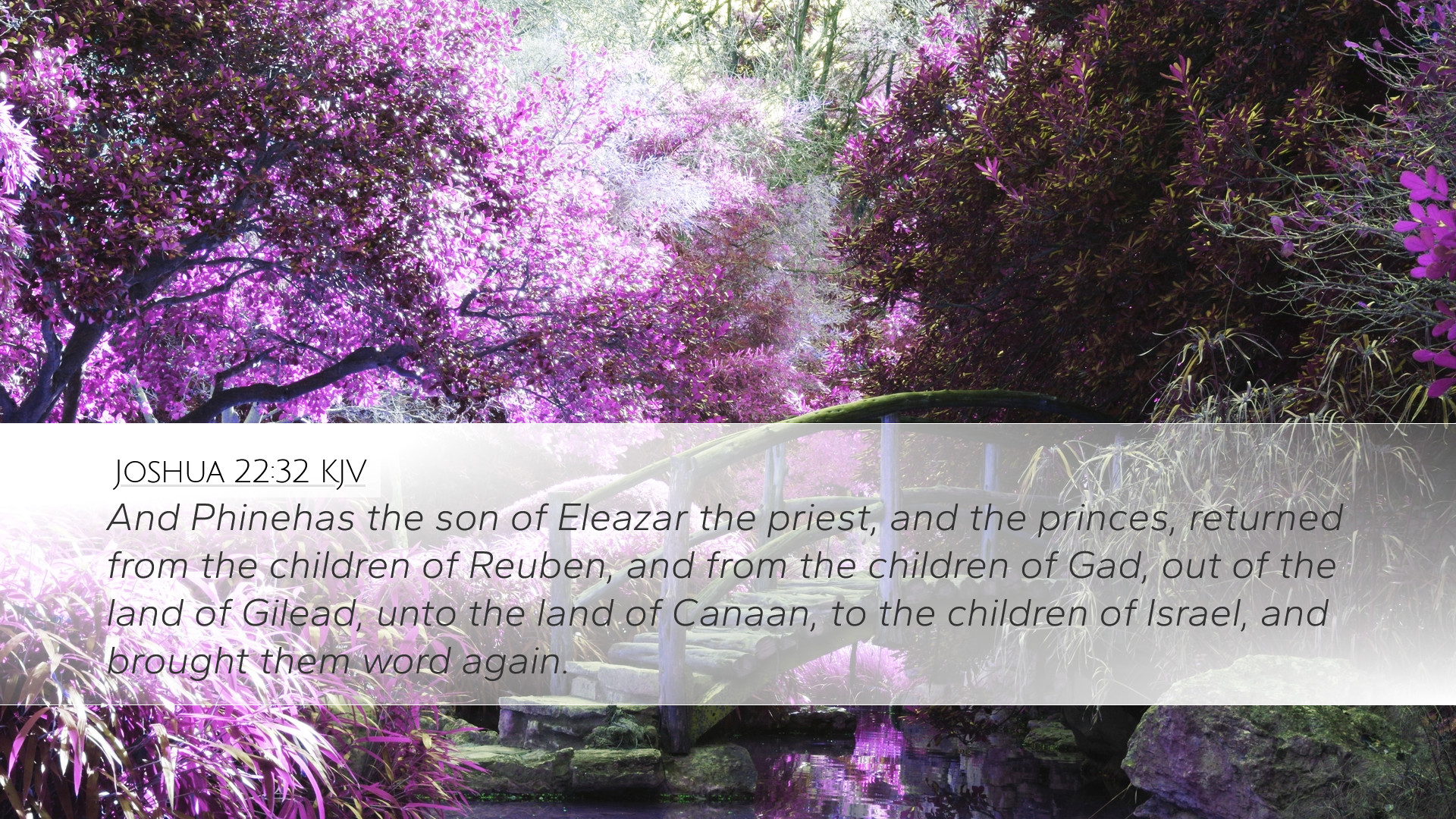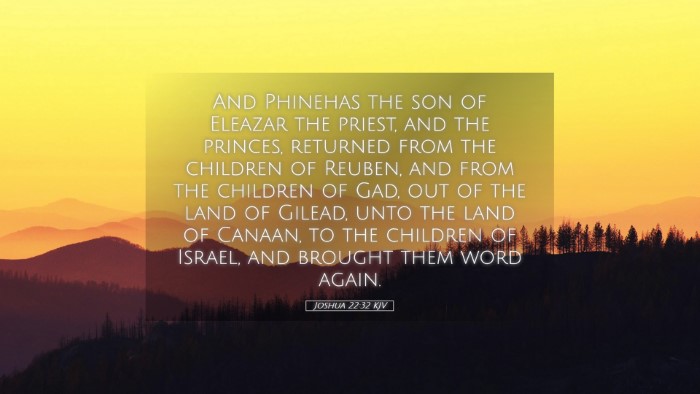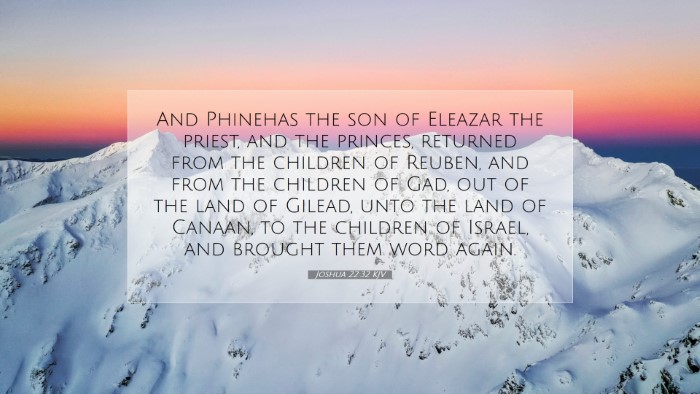Commentary on Joshua 22:32
Verse Context: Joshua 22:32 states: “And Phinehas the son of Eleazar the priest said unto the children of Reuben, and to the children of Gad, and to the half tribe of Manasseh, This day we perceive that the LORD is among us, because ye have not committed this trespass against the LORD: now ye have delivered the children of Israel out of the hand of the LORD.”
Introduction
This passage is crucial for understanding the dynamics of Israelite unity, the significance of their covenant relationship with God, and the role of leadership in guiding and maintaining that relationship. It encapsulates themes of fidelity, accountability, and the acknowledgment of God’s presence amongst His people.
Exegesis and Interpretation
Understanding the Historical Context
The events leading up to Joshua 22 revolve around the distribution of the land among the tribes of Israel after they had entered Canaan. The tribes of Reuben, Gad, and the half-tribe of Manasseh requested to settle on the eastern side of the Jordan River. This request raised concerns among the other tribes, fearing abandonment and disunity within Israel.
Phinehas’s Role
Matthew Henry emphasizes the importance of Phinehas's leadership, noting that he was a zealous defender of God’s holiness. He had previously acted decisively in confronting sin among the Israelites, which established his credibility and authority. Here, his intervention serves to clarify misunderstandings and to reaffirm the commitment of these tribes to the covenant.
The Core Message of Unity
Albert Barnes notes that the acknowledgment of God’s presence (“the LORD is among us”) is conditional upon obedience. The tribes of Reuben, Gad, and Manasseh’s actions demonstrate their loyalty to the covenant, reinforcing the idea that their unity in faith and practice is vital for the nation. This indicates that God’s favor hinges on collective fidelity, not just individual actions.
The Significance of Trespass and Deliverance
Adam Clarke elaborates on the concept of trespass as it relates to Israel’s covenant with God. He highlights the potential consequences of sin, stating that straying from the covenant could lead to severe repercussions. However, the act of not trespassing shows a commitment to the covenant which, in turn, delivers Israel from God’s hand, signifying His protective grace.
Spiritual Applications
The Importance of Leadership in Spiritual Communities
The passage emphasizes the role of leaders in navigating complex relational dynamics. Leaders must communicate effectively, maintain unity, and guide the community in its covenant with God. As Phinehas acted with wisdom and courage, pastors and leaders today are called to seek God's guidance in upholding community integrity.
Faithfulness to God’s Covenant
Faithfulness is a recurring theme in the Bible, illustrated vividly in this account. The faithfulness of the eastern tribes serves as a reminder of our own commitments. Henry suggests that believers today reflect on their own actions; are we honoring our commitments to God and to one another?
God’s Presence Among Us
The acknowledgment of God’s presence is profound. Barnes remarks that the realization of God’s among us can be pivotal for believers. It is a call to cultivate a relationship with God that is marked by obedience, reinforcing the assurance of His steadfast presence.
Moving Beyond Misunderstandings
Phinehas’s intervention brings light to the importance of addressing misunderstandings before they escalate into wider conflict. As seen in this narrative, communication among believers can prevent division and promote unity, reflecting Christ’s teaching on love and reconciliation.
Conclusion
Joshua 22:32 encapsulates vital lessons for those in leadership and all believers. It calls for direct leadership, emphasizes the importance of the covenant, and showcases the beautiful provision of God’s presence in moments of potential dispute. Leaders and communities are encouraged to emulate Phinehas’s commitment to God and His people, ensuring fidelity and unity in the body of Christ.


